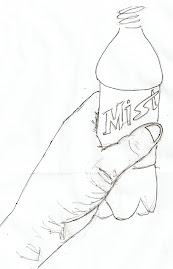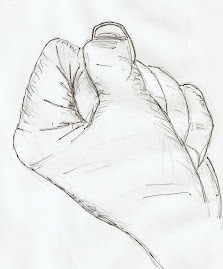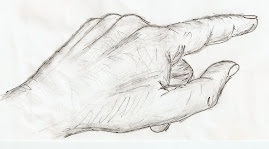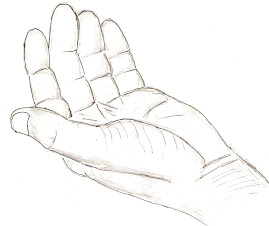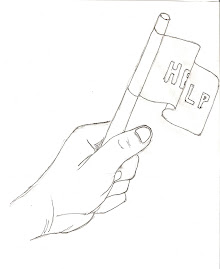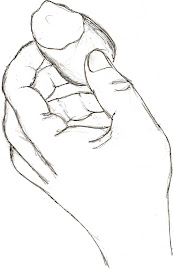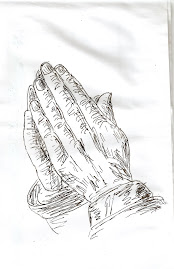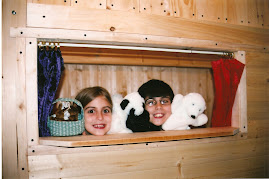Sunday, May 9, 2010
Mother's Day
The Little Red Table: Mother’s Day Tribute
As a young mother during the depths of the depression, Mom never wasted a thing. She scrubbed floors to buy onions for sandwiches, which of course produced breast milk I couldn’t digest (she later told me). She got us through those lean times with grit, determination and creative rejuvenation of ostensibly worthless rejects. Those harsh years and their lessons stuck, and over the length of my childhood I recognized her—though I didn’t know the term—as a congenital recycler. Americans of today, to be as patriotic as consumers are taught to be, use things for a while, even so-called “durable goods,” and then throw them away. It doesn’t matter if it is bought for cash or on credit; when we tire of something it goes out the door, either into a huge trash truck or a yard sale for ten cents or less on the dollar.
At our house, from kindergarten through high school, I saw old sofas and chairs recovered, woodwork, walls and cabinets repainted, rooms repapered and leftovers turned into stew.
In 1972 the old farm I bought in rural Maine came with a leaky barn full of discarded items which had never found their way into the normal stream of castoffs. Every few weeks for the first several years, I loaded the pickup and a converted boat trailer (overloaded would be more accurate) with a huge mound of stuff I couldn’t always identify and hauled it to the cone burner out on the Mapleton Road.
The most recent collection was ready to cart away when my retired parents Buicked into the farmyard one year for the opening of strawberry summer. Mom spotted a scarred brindle table with a leg chewed half off by a transient porcupine and disrespectfully covered with bird stains and grime. The unfortunate thing rested forlornly atop that ugly heap of barn junk--rusty iron, broken jars, oil cans and torn gum rubbers. It had lain there for a very long time before Nature and I finally consigned it to oblivion. With its uneven legs pointing skyward, it looked like a prehistoric beetle which had just lost a serious skirmish with the Orkin Man.
Mom lost no time in speaking up for the homely relic so I was forced to wrestle it from the pile and add an extension to the damaged leg. She hosed down the restored incarnation and gave it two coats of Farmall red.
Mom leaned over that table for a host of sunny seasons in the shade of the woodshed doorway while July strawberry patrons passed her crisp fives and tens. She tucked them with maternal care into the table’s lone drawer and was hardly aware of the vision she made as she bantered with customers pleased with the crop. Her smoky brown eyes and magnificent smile were more than enough to persuade me that the table was her. She had given it fresh life and pressed it into obedient service, just as she had countless things over her long life. When the picking was over for the summer, she and Dad eased their car down my long driveway and onto the Egypt Road. I was never happy to wave goodbye and often during their long absences found myself drawn out to that formerly busy spot in the yard to drink in her lingering spirit. The little red table always seemed to radiate a special northern New England warmth, even many years after the strawberries and Mom were only a wonderful memory.
The woodshed in winter was stark still and cold, but the table suggested as I began to feel old that since she longed for spring I should do so as well. And two welding gas tanks stood as close as they could--solemn, silent sentries who knew her true worth, but wouldn’t tell.
As a young mother during the depths of the depression, Mom never wasted a thing. She scrubbed floors to buy onions for sandwiches, which of course produced breast milk I couldn’t digest (she later told me). She got us through those lean times with grit, determination and creative rejuvenation of ostensibly worthless rejects. Those harsh years and their lessons stuck, and over the length of my childhood I recognized her—though I didn’t know the term—as a congenital recycler. Americans of today, to be as patriotic as consumers are taught to be, use things for a while, even so-called “durable goods,” and then throw them away. It doesn’t matter if it is bought for cash or on credit; when we tire of something it goes out the door, either into a huge trash truck or a yard sale for ten cents or less on the dollar.
At our house, from kindergarten through high school, I saw old sofas and chairs recovered, woodwork, walls and cabinets repainted, rooms repapered and leftovers turned into stew.
In 1972 the old farm I bought in rural Maine came with a leaky barn full of discarded items which had never found their way into the normal stream of castoffs. Every few weeks for the first several years, I loaded the pickup and a converted boat trailer (overloaded would be more accurate) with a huge mound of stuff I couldn’t always identify and hauled it to the cone burner out on the Mapleton Road.
The most recent collection was ready to cart away when my retired parents Buicked into the farmyard one year for the opening of strawberry summer. Mom spotted a scarred brindle table with a leg chewed half off by a transient porcupine and disrespectfully covered with bird stains and grime. The unfortunate thing rested forlornly atop that ugly heap of barn junk--rusty iron, broken jars, oil cans and torn gum rubbers. It had lain there for a very long time before Nature and I finally consigned it to oblivion. With its uneven legs pointing skyward, it looked like a prehistoric beetle which had just lost a serious skirmish with the Orkin Man.
Mom lost no time in speaking up for the homely relic so I was forced to wrestle it from the pile and add an extension to the damaged leg. She hosed down the restored incarnation and gave it two coats of Farmall red.
Mom leaned over that table for a host of sunny seasons in the shade of the woodshed doorway while July strawberry patrons passed her crisp fives and tens. She tucked them with maternal care into the table’s lone drawer and was hardly aware of the vision she made as she bantered with customers pleased with the crop. Her smoky brown eyes and magnificent smile were more than enough to persuade me that the table was her. She had given it fresh life and pressed it into obedient service, just as she had countless things over her long life. When the picking was over for the summer, she and Dad eased their car down my long driveway and onto the Egypt Road. I was never happy to wave goodbye and often during their long absences found myself drawn out to that formerly busy spot in the yard to drink in her lingering spirit. The little red table always seemed to radiate a special northern New England warmth, even many years after the strawberries and Mom were only a wonderful memory.
The woodshed in winter was stark still and cold, but the table suggested as I began to feel old that since she longed for spring I should do so as well. And two welding gas tanks stood as close as they could--solemn, silent sentries who knew her true worth, but wouldn’t tell.
Subscribe to:
Comments (Atom)
